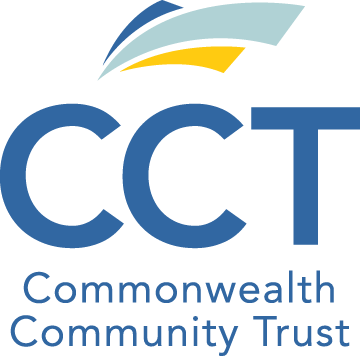Survivor Benefit Plan and Pooled Special Needs Trusts for Dependent Children
Survivor Benefit Plan and Pooled Special Needs Trusts for Dependent Children: Enriching Quality of Life and Protecting Medicaid and Supplemental Security Income (SSI)
By Joanne Marcus, MSW, President and CEO of CCT
With the passage of the Howard P. “Buck” McKeon National Defense Authorization Act of 2015 (Section 624, which amends title 10, United States code sections 1448, 1450, and 1455) military members and retirees were given the option of directing annuity payments from the Survivor Benefit Plan (SBP) to a Pooled Special Needs Trust (PSNT) for the benefit of a dependent child with special needs. A PSNT established in the name of the child does not jeopardize the child’s eligibility for SSI and Medicaid. The benefit described in this article should not be confused with eligibility for VA Benefits and that each program should be considered in detail.
WHAT IS A POOLED SPECIAL NEEDS TRUST (PSNT)?
A (PSNT) is a type of special needs trust that is administered by a nonprofit organization and is a cost effective way to preserve funds that will be used solely to enrich the quality of life of a child with special needs. SBP annuity payments fund the trust and the funds for each Beneficiary are “pooled” together for investment purposes. Pooling of funds reduces administrative fees and increases the principal for investment purposes. Individual subaccounts are created, and financial statements are provided electronically for those with internet access or by mail. Funding minimums are low and once the funded, the trust is irrevocable. The PSNT administrator makes decisions on how funds from the trust are disbursed on behalf of the Beneficiary and manages the investment of the funds.
By law, a Military Survivor Benefit Plan trust must be set up as a first-party funded special needs trust due to the Medicaid payback provision. Upon the death of a Beneficiary who receives Medicaid, there are specific rules for what happens to the remainder. These rules vary from state to state but in general, when funds remain in the account upon the Beneficiary’s death, it is required that the funds be used first to payback Medicaid for benefits the Beneficiary received during his or her lifetime. For a Beneficiary who has never received Medicaid benefits, the remaining funds are distributed to the Successor Beneficiary(‘s)3 after allowable fee distributions are deducted.
ESTABLISHING THE LINK BETWEEN SBP AND PSNTs
CURRENTLY SERVING MILITARY MEMBERS
Prior to making the Survivor Benefit Plan election the trust account must be established and the member must have the trust Tax Identification Number and the Special Needs Trust
Certification form. Election of Survivor Benefit Plan benefits prior to retirement is processed by the Service and once approved is irrevocable.
RETIRED MILITARY MEMBERS
To be eligible to elect the option to cover the special needs trust under the Survivor Benefit Plan, the retiree must have previously elected Spouse and Child or Child Only coverage for a disabled child under the Survivor Benefit Plan. There must also be an established and certified special needs trust. If the service member is alive and if they have previously elected Spouse and Child or Child Only coverage under the Survivor Benefit Plan, they may make the designation to direct payment on the behalf of a beneficiary to a special needs trust at any time. After the death of a member or retiree, if the service member or retiree had elected Spouse and Child or Child Only coverage under the Survivor Benefit Plan, any surviving parent, grandparent or court appointed legal guardian may make the designation on the behalf of a beneficiary.
WHY A MILITARY SURVIVOR BENEFIT PSNT MAKES SENSE
The trust can be used to pay for expenses that will enhance the quality of life for the beneficiary including, but not limited to, medical and dental services not covered by insurance, assistive technology, pre-paid burial expenses, caregiver expenses and more. By establishing a PSNT, there can be peace of mind knowing that payments from a Survivor Benefit Plan will be available for a loved one without jeopardizing eligibility for Medicaid and SSI.
Related Links:
Nancy, Grandmother and Advocate of a CCT Beneficiary
"CCT has been wonderful in serving the financial needs of my grandson. They are always prompt in answering questions and suggesting how we can make something happen for him. He just turned 18 this year and we still plan on using this service." — Nancy, Grandmother and Advocate of a CCT Beneficiary

Holly, CCT Beneficiary
The first-person special needs trust, and the people who help manage the trusts, has been such a blessing. The combination has lifted a huge weight from my shoulders[.] — Holly, CCT Beneficiary
James, CCT Beneficiary
[I]t is people like you, who help those of us with disabilities which keeps us from living what would be “normal” lives, that is a blessing and gift that goes unseen, unheard of, and unrecognized. You make everyday tasks that most people take for granted but to me are frightening and debilitating and make them […]
Elaine, CCT Beneficiary
CCT has been a blessing and one of the smartest moves I’ve made. They are always there to help you with any questions you may have. I was able to purchase a new car and had work done on my house. I have a very blessed life, and CCT contributes to that[.] — Elaine, CCT […]
Grandmother of Beneficiary Kobe
"CCT made getting the wheelchair equip van we so much needed for our grandson the easiest purchase ever. Thank you CCT!!!" — Grandmother of Beneficiary Kobe
Rhonda, Mother and Advocate of a CCT Beneficiary
"CCT has been amazing. Very helpful with guiding us through this process." — Rhonda, Mother and Advocate of a CCT Beneficiary
Nancy, Grandmother and Advocate of a CCT Beneficiary
"CCT has been wonderful in serving the financial needs of my grandson. They are always prompt in answering questions and suggesting how we can make something happen for him. He just turned 18 this year and we still plan on using this service." — Nancy, Grandmother and Advocate of a CCT Beneficiary
Holly, CCT Beneficiary
The first-person special needs trust, and the people who help manage the trusts, has been such a blessing. The combination has lifted a huge weight from my shoulders[.] — Holly, CCT Beneficiary
CCT
Trusts
Professionals
Clients

*Disclaimer Statement: CCT is not a chartered bank or trust company, or depository institution. It is not authorized to accept deposits or trust accounts and is not licensed or regulated by any state or federal banking authority.
All Rights Reserved | Commonwealth Community Trust


